Alpha to the Omega: Y is for YMCA

By Samuel Chong
“How can a young man keep his way pure? By living according to Your word.” (Psalm 119:9)
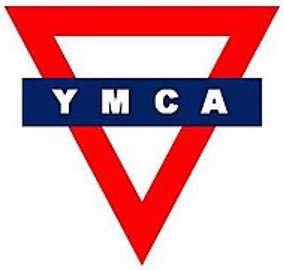
What is the YMCA?
The Young Men’s Christian Association, better known by its acronym YMCA, is a worldwide youth organisation that aims to put Christian values into practice by developing a healthy “body, mind, and spirit” – the principles of “muscular Christianity”. It is also known for being the subject of the 1978 hit song of the same name by the Village People.
Young Man – The YMCA’s Origins
The YMCA was founded in 1844 in London by George Williams, an English businessman and philanthropist. Williams and his friends were concerned about the lack of healthy activities for young men who moved to major cities during the Industrial Revolution, many instead spending their time in taverns and brothels. William’s idea of providing social and spiritual development grew out of meetings he held for prayer and Bible reading among his fellow workers. The concept soon gained a following as other industrial companies and factories started their own groups.
Go West – The YMCA goes Global
The YMCA spread outside of the UK thanks in part to the Great Exhibition of 1851 which brought in visitors from around the world. By the end of that year, there were YMCAs in Europe, America, Hong Kong, and Australia.
Henry Dunant, Secretary of YMCA Geneva (and later the co-founder of the Red Cross and recipient of the first Nobel Peace Prize) was responsible for making the YMCA a globally coordinated movement. He convinced YMCA Paris to organise the first YMCA World Conference in 1855. The Conference agreed to respect the local autonomy of YMCA societies while working together towards the common mission of uniting all young, male (later including females) Christians for the extension and expansion of the Kingdom of God. The Paris Basis, as this understanding came to be known, formed the basis for all present and future national YMCAs.
The YMCA now operates globally on a federation model as laid out in the Paris Basis, with local, national, regional, and international bodies. The World YMCA is the highest affiliation body and convenes a World Council every three to four years as the highest decision-making forum.
Macho, Macho Man – The YMCA and Muscular Christianity
The YMCA was associated with and promoted “muscular Christianity” – the cultural philosophy that combined Christianity with patriotism, discipline, self-sacrifice, and athleticism. It was believed that physical training built the stamina necessary for performing service to others, and that physical strength developed moral character.
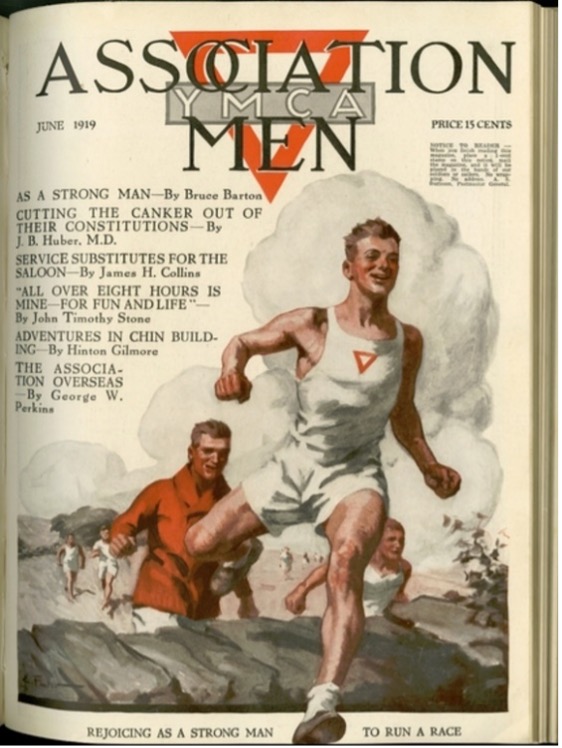
As YMCAs introduced sports facilities in the 1870s, it became the site where many modern sports were invented:
- Basketball was invented at a Massachusetts (USA) YMCA in 1891 by Dr James Naismith. Naismith was tasked with creating an indoor “athletic distraction” for rowdy youths during the winter months. The result was basketball – designed to be physically active, simple to understand, and with minimal physical roughness.
- Volleyball was invented at another Massachusetts YMCA four years later in 1895. Its inventor, William Morgan, wanted to create a slower-paced alternative sport with less physical contact for older YMCA members.
- Futsal (a football-based game played on an indoor hardcourt) was invented by Juan Carlos Ceriani at a YMCA in Uruguay in 1930. As football was so popular, Ceriani sought to create a team game like football that could be played indoors for recreation in YMCAs.
Gymnastics were also widely practiced at YMCAs, although it soon lost popularity to group sports like basketball and volleyball.
In the Navy – The Singapore YMCA’s Wartime Legacy
The YMCA of Singapore was founded in 1903 and was granted a site at Dhoby Ghaut, where the YMCA building is located today. The YMCA introduced many sports to youths in Singapore and housed Singapore’s first swimming pool.
During the Japanese Occupation, the YMCA building was seized and turned into an interrogation centre for the Kempeitai (i.e. Japanese secret military police). War heroine Elizabeth Choy (a YMCA member herself) was one of the many prisoners tortured there. After the war, the YMCA building was retained despite the British authorities’ plans to demolish the site. It was eventually torn down in the early 1980s and replaced with the nine-storey building we see today.
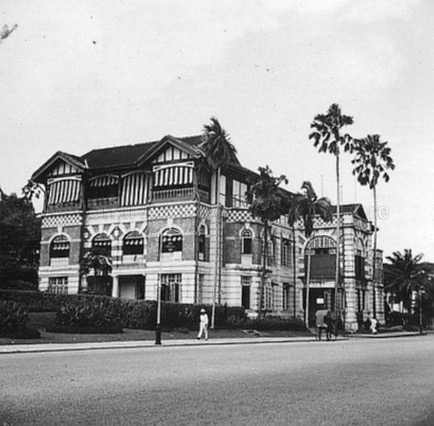
Readers may not be aware that two YMCAs exist in Singapore – the YMCA of Singapore and the Metropolitan YMCA (MYMCA). The latter was started by Dr Chen Su Lan, a philanthropist and social reformer, who wanted a second YMCA to serve the interests of the Chinese majority. Initially founded as the Chinese YMCA in 1946 after two decades of opposition from the British authorities, it was renamed the MYMCA in 1974 to reflect its aim to serve people of all ethnicities. It is currently headquartered at Stevens Road.
The YMCA’s sister organisation, the Young Women’s Christian Association (YWCA), is also in Singapore. It was established here in 1875 by Sophia Cooke, the head of the Chinese Girls’ School (now known as St Margaret’s School). JCC held a church retreat there in 2003 (exactly 20 years ago! My how time flies…).
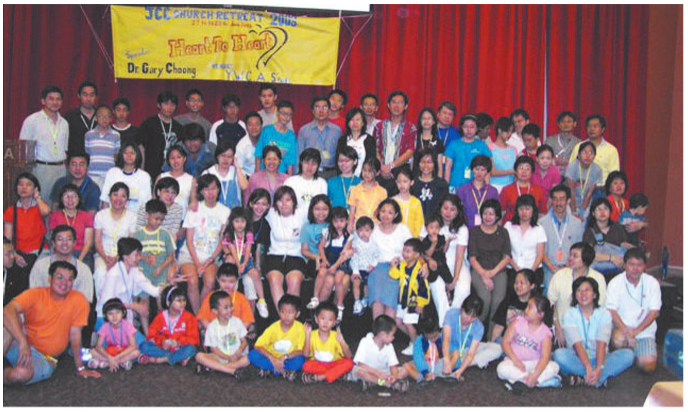
“It’s fun to stay at the Y-M-C-A” – The Song
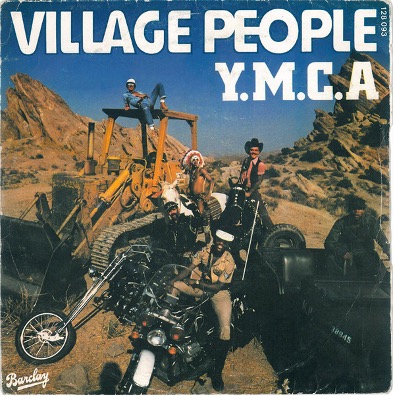
Any discussion on the YMCA would be remiss without mentioning the eponymous 1978 hit song by the Village People. The YMCA in America had built single room occupancy facilities in the 1880s to house people from rural areas who moved into cities to look for work. By the 1970s, the demographics of YMCA tenants had shifted to homeless people and youths facing life issues.
The YMCA’s activities for young urban black youth inspired the writing of the song, whose lyrics extol the virtues of the YMCA. However, not many may realise the gay culture from which the image and music of the Village People came; the song’s original meaning is implicitly understood as celebrating the YMCA’s reputation as a popular meeting spot for homosexuals under the cover of athletic facilities. However, it is now simply a fun and catchy song that everyone can enjoy.
Can’t Stop The Music – Conclusion
The YMCA was founded to address moral and spiritual issues arising from the Industrial Revolution, a period of great economic and social change. It’s emphasis on developing a healthy “body, mind and spirit” made it a key vehicle for the spread of “muscular Christianity” (a leading ethos of the period), giving rise to various modern sports in the process. While most people might only know the YMCA through the 1978 song, we can appreciate its veritable Christian legacy which is continued in Singapore and around the world today.
All information and pictures taken from the respective Wikipedia articles unless otherwise stated.
Further Reading







Responses